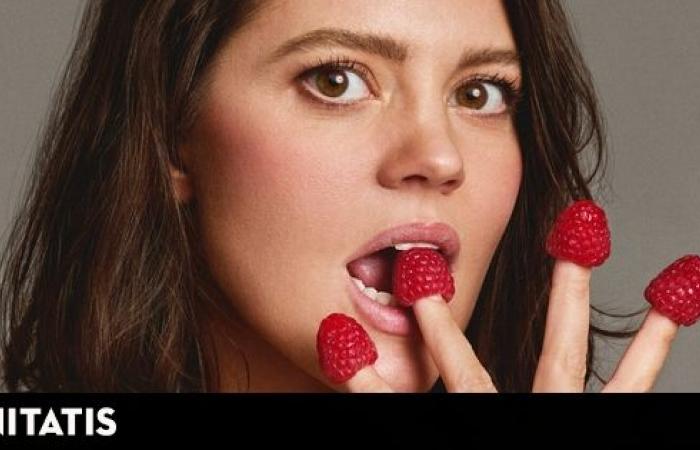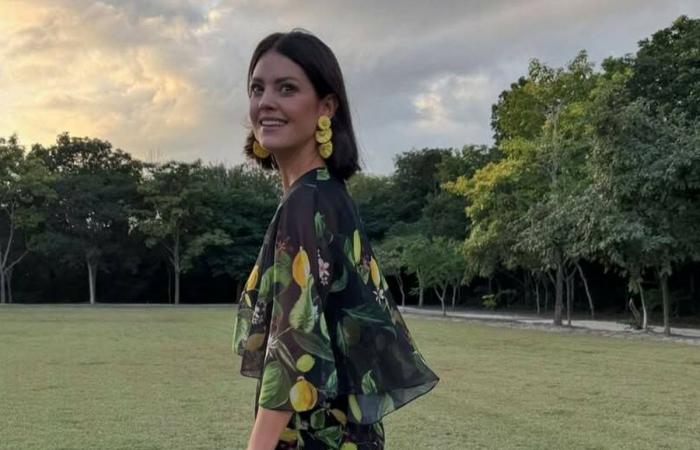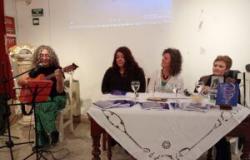Isabelle Junot, Marquesa de Cubas, has just launched a book that is, in essence, a manifest of realistic and conscious well -being: ‘Eat Girl! Of obsession with illusion ‘. Away from fashions and fast solutions, the author invites to rethink the relationship with food, body and emotions from a place of acceptance and self -care. Addresses full issues, for her, The true transformation does not go through shortcuts, but to build sustainable habits and a healthy relationship with oneself. From his personal and professional experience, he claims a more intuitive life, away from dietary impositions and aesthetic obsession. A fresh, empathic and very necessary proposal in a society increasingly pressured by the standards. We talk to her about this and much more:
Q: How did you get to this way of understanding well -being?
R: I started because traditional guidelines didn’t work for me. I tried to stop eating sugar, but ended up obsessing me more. I realized that something was missing: the true piece of the puzzle was to have a healthy relationship with food and myself. Learning to allow me to eat everything, without prohibitions, completely changed my anxiety regarding food.
You may be interested
C.C
Q: In our society, Wellness has taken a fundamental role …
R: At the end of the day it is much more than simply what you put on your plate. It is what you feed in your day to day. Sleeping enough, obviously what you eat, how you eat, what you say while you eat and after eating, it’s like everything.
Q: Did food always play an important role in your life or have you giving more importance?
R: It was very natural. The food is part of my day to day and also of my internal dialogue: what should eat or not, the fault … My change consisted of starting to have a more logical and positive internal dialogue. Simply, I have focused on having a logical voice and parking the continuous machaqueo system. So I decided to study more about food so as not to live in constant fear of eating the wrong, to eat the insane, to gain weight. And so I have reached this path to help simplify life, your relationship with food, with yourself and your body.
Q: Itziar Digón, a psychologist specializing in conscious food, says “Discover a new way of treating yourself while you eat.” How can we get to talk better? How do we get a turn to that psychological routine of our relationship with food?
R: The first thing is to start by accepting that something must be changed. One is trying to identify what you are doing, which is as a normal part of your day to day: talk to you, crush, not in plan, “again you have eaten badly” or “you should not eat this.” Now that you have eaten this, you should play sports…. Be aware of what you say in your day to day and how you tell yourself. Always try something positive. I never intend that in front of the mirror you tell yourself “I love you my love”, if it is not very real for you. If you are fighting a negative body image all your life. But there is a way of stopping, identifying that you are doing it and simply stop doing it and moving on to something else, thinking about another narrative. And that’s where I say: if you can’t be positive, it’s neutral.
Q: How did you change that demanding internal dialogue?
R: First, being aware of what he told me daily. when you acknowledge that you speak badly, you can start transforming those thoughts into neutral statements or, if possible, positive.
Q: Speaking of the new generations, do you think the approach to the physical appearance is changing?
R: On the one hand, yes, there are advances and welfare is increasingly valued above the appearance. But at the same time, social networks encourage constant comparison. It is a contradictory terrain.
Q: What feedback have you received from your readers?
R: It has been incredible. They write to me by saying that they have changed the way of relating to food and with themselves.
Q: How do you apply in your daily life the principles of your book?
R: Listening to me. I do not follow strict rules, but I adapt my decisions to my needs and objectives, but always from calm, not from the demand. I think what am I going to do that day, how much energy will I require and if I am going to do sports immediately.
You may be interested
Miguel de la Torre
Q: Beyond nutrition, what habits of beauty and well -being do you consider essential?
R: Walk every day, although it is not always doing sports formally. Normally, I do Pilates and force exercise, but now I have been away from home for two weeks and try to move the body every time I can. With the girl on top it complicates a little, but I look for my times. And as for beauty, a basic but constant facial care routine.
Q: What importance do you give in the care of the skin at home?
R: A lot. I love my cleaning and facial care ritual before sleeping. In addition, I take care of my inner hydration, taking electrolytes and making sure to maintain a good balance of minerals.
Q: Is there also that awareness of well -being?
R: Yes, both my father and my mother take great care. Given my mother’s Nordic origin, a very Nordic family in that sense, very focused on the use of natural fibers, balanced feeding and outdoor life. In fact, we even had a Osmosis water machine at home.
Q: And sun protection? Do you consider it?
R: I try not to put myself directly in my face. Yes, I expose something to the body, but always consciously. And I choose sunscreens with formulas that are respectful of the skin and the environment.
Q: In addition to training, what other resources have helped you build this book and your philosophy of life?
R: I have certifications in Mindful Eating and intuitive food, but, above all, it has been daily practice and adapt it to my real life, which has really made me integrate.
Q: Has all this learning also helped you in your professional-personal balance?
R: Definitely. It has taught me to prioritize my well -being and that of my family.
Q: What was the biggest challenge when writing your book?
R: Compagate it with the care of my daughter and my work. That was the most difficult part. I have tried to write a manual in which I speak of approach, of routines, that hopefully there was a magical wand, but as there is no, I try to teach to improve your vitality, energy and essence.
8410274205
Q: What do you think of rapid methods to lose weight as the new “magical wands” such as Ozempic?
R: It is the opposite of my book. But I can’t speak at a medical level. Maybe there are patients who need it and phenomenal that exists, as a fast remedy. It seems to me that it is not the solution and that you have to be very careful to submit your body, because you are involving insulin. They are not real solutions. I prefer an approach based on changing habits and working the relationship with food sustainably.
Q: Now you are in the United States, you travel a lot. What healthy habits have you incorporated from other countries?
R: From Denmark, the proximity to local and organic products and to cook things at home. Of the United States, creativity in healthy options. And of France, to include rich products in the diet. In the end, I keep a balance of everything.
Q: What profiles are you still on social networks that inspire you?
R: I follow people who transmit a healthy relationship with sport and food. I value authenticity.
Q: In the line of organic food you mentioned before, what do you think of sustainable fashion?
R: I love to support small and slow fashion brands, but I am also practical and flexible. I am a contemporary woman. I think, as in everything, balance is the key.
Q: Finally, how would you describe the vital moment in which you are?
R: I am living a very nice moment with my family, my daughter and my book. Much joy.
Q: What trends do you see in the world of beauty and well -being?
R: Everything related to authenticity, conscious self -care and holistic well -being. More and more, people seek to feel good, not just look good.







